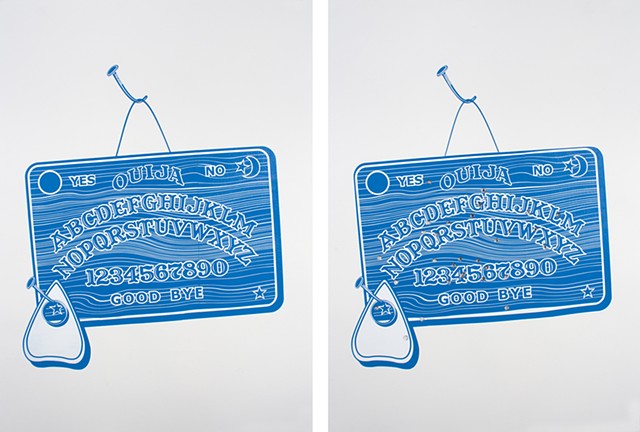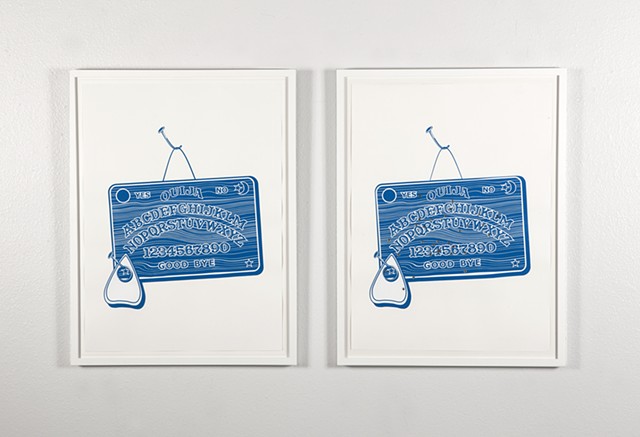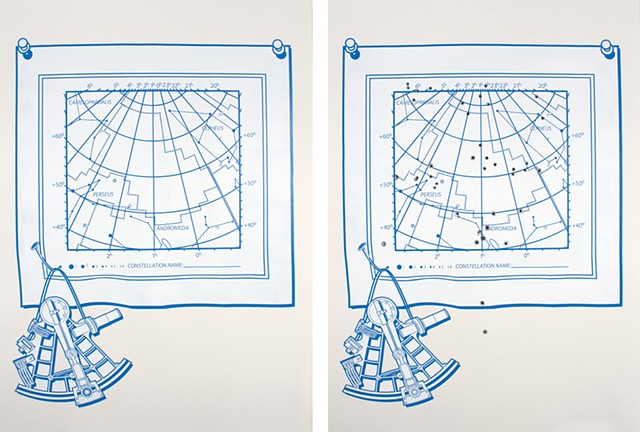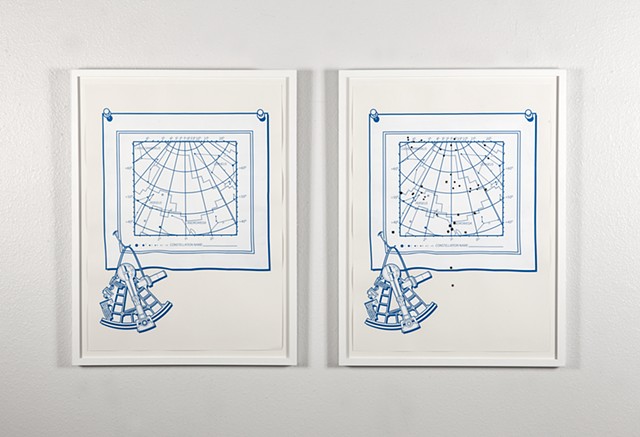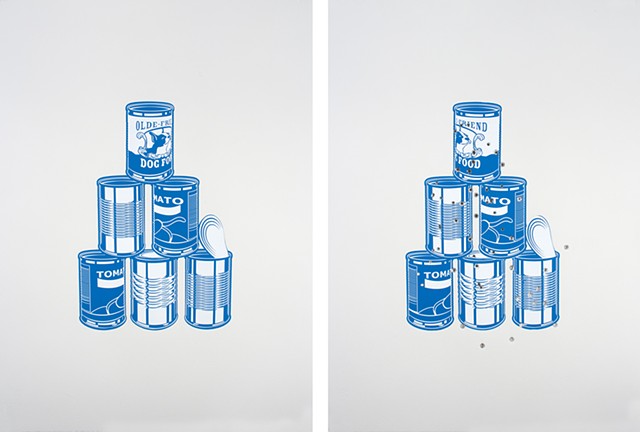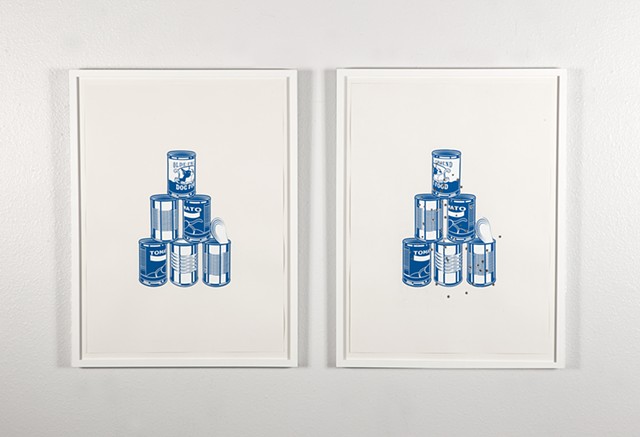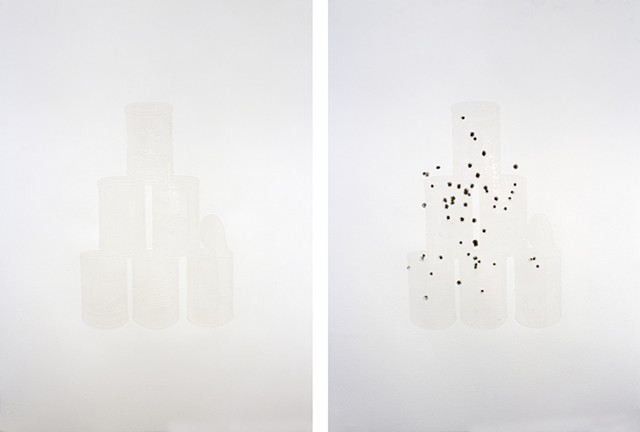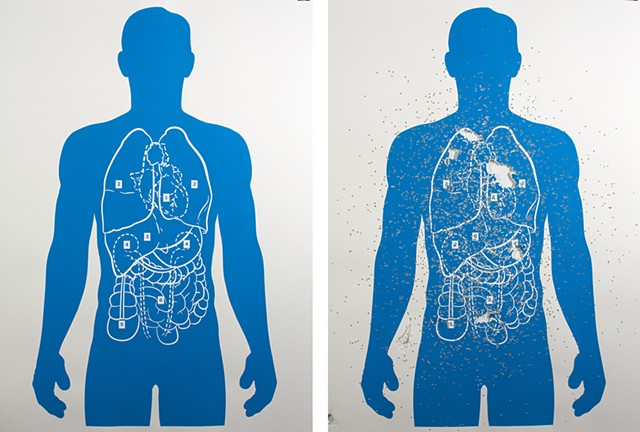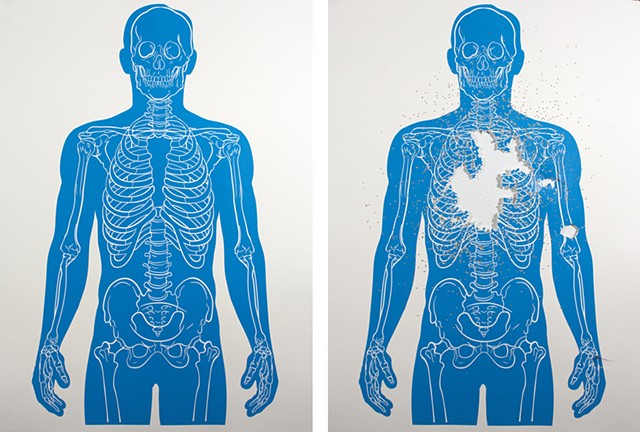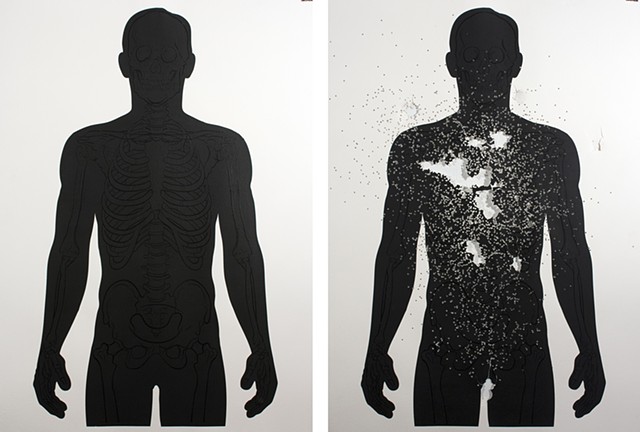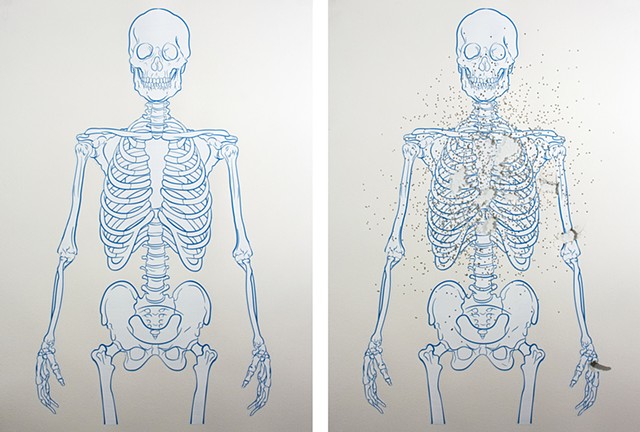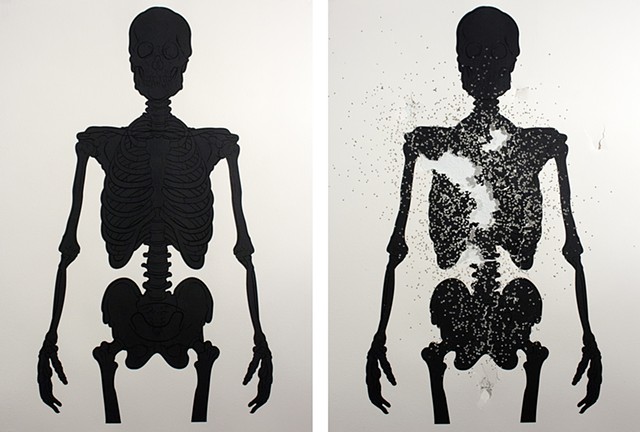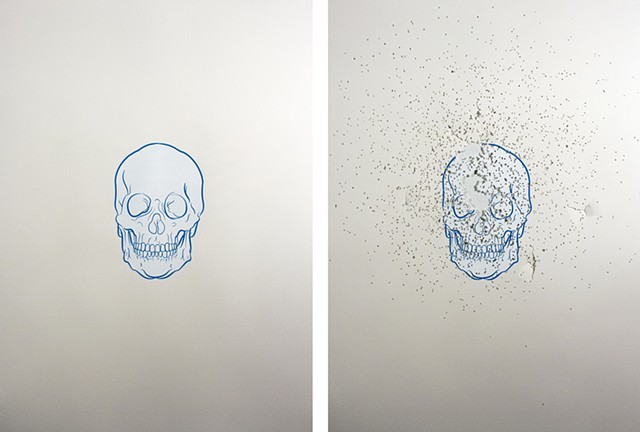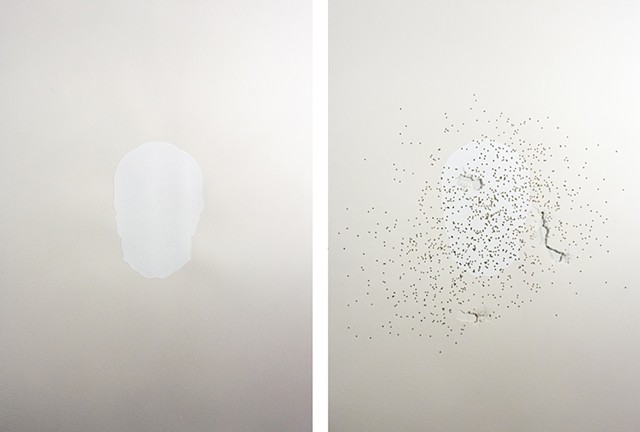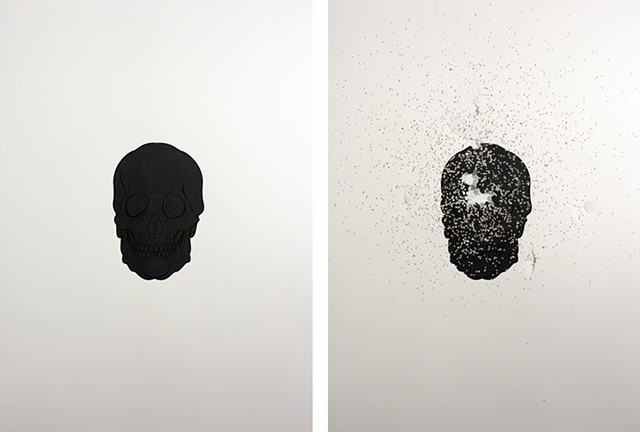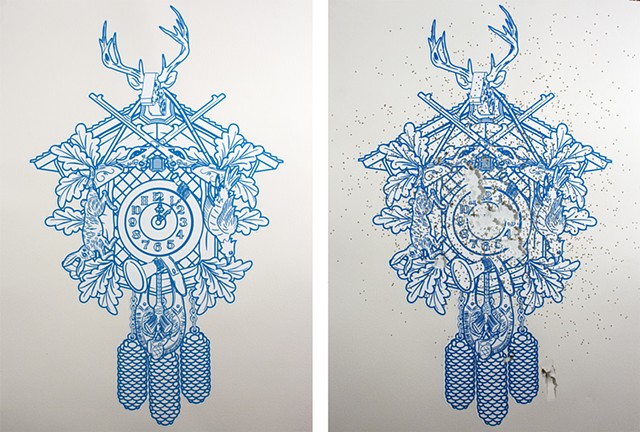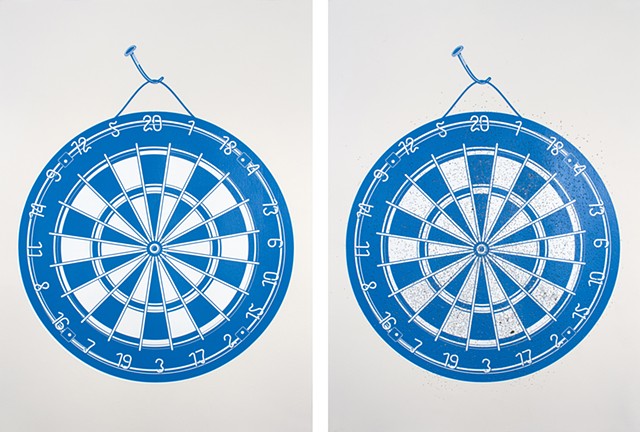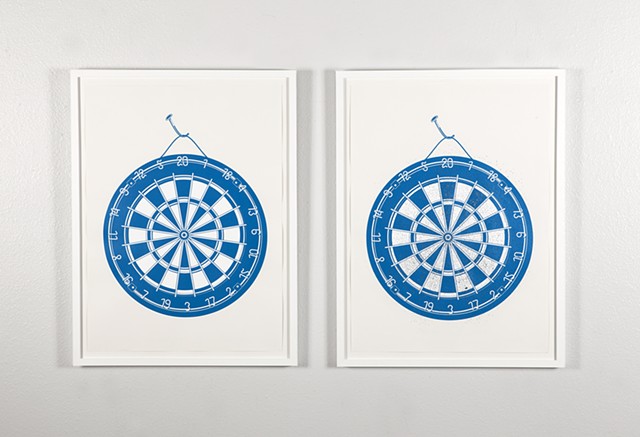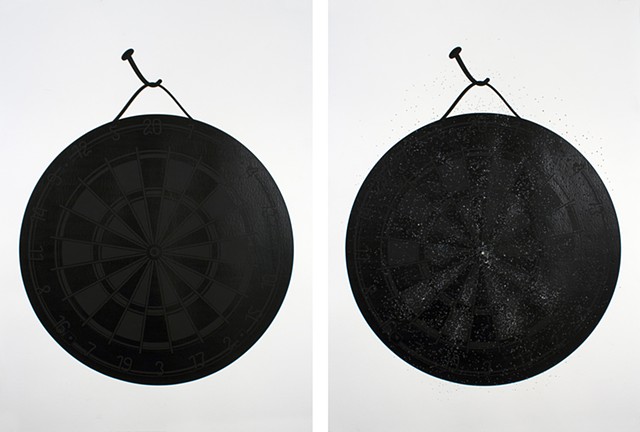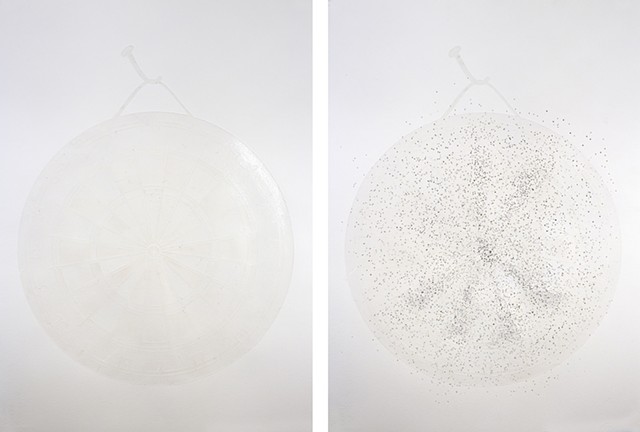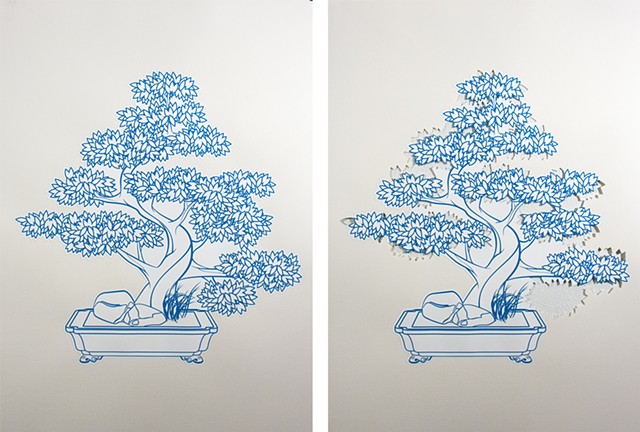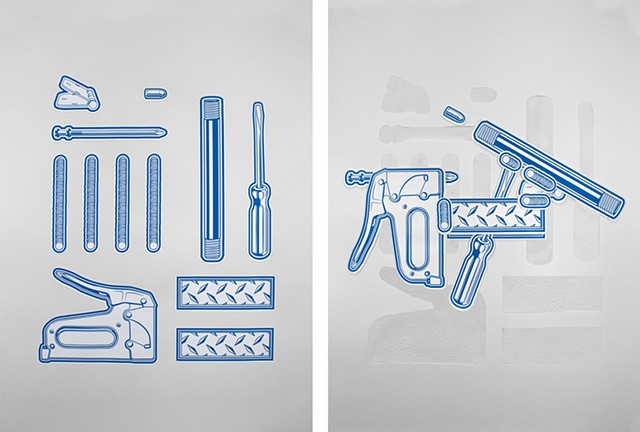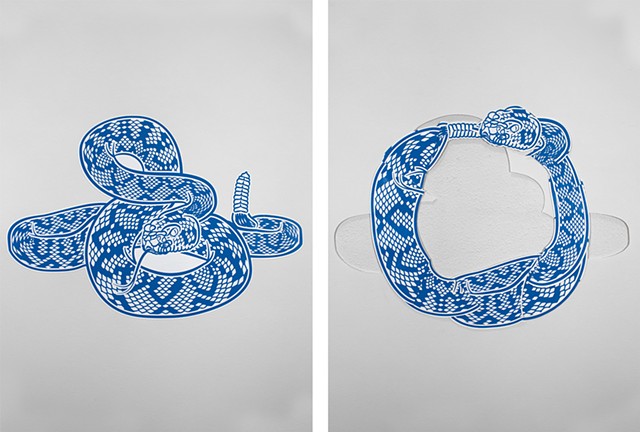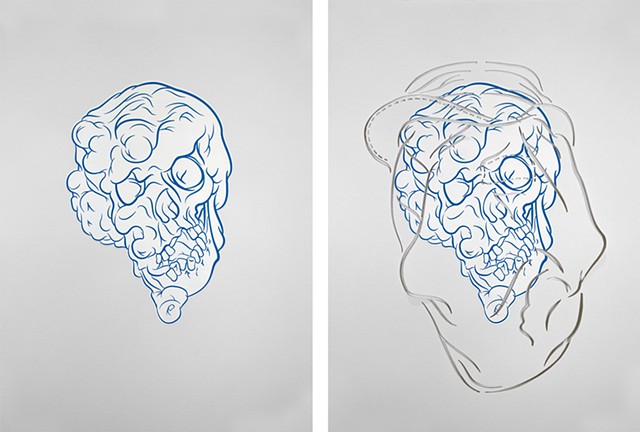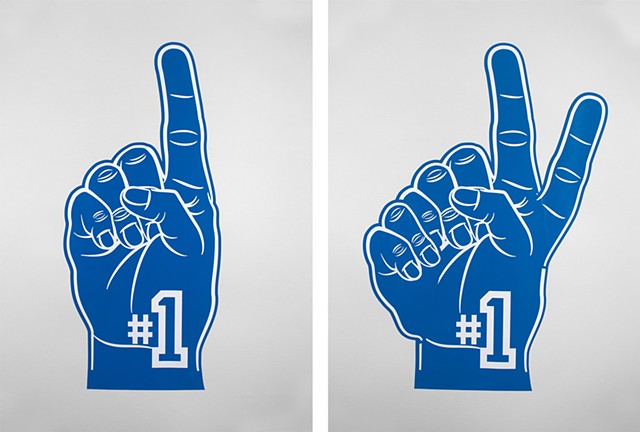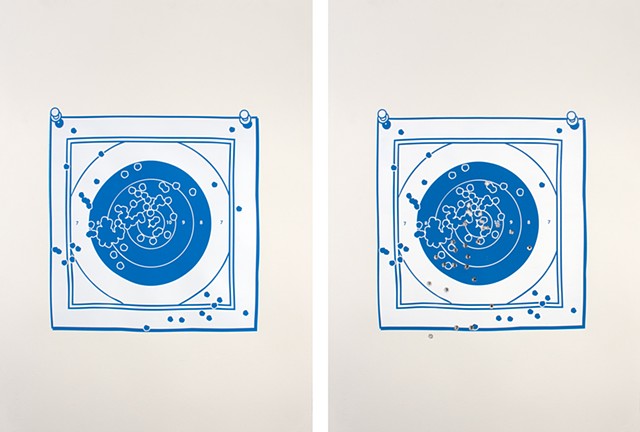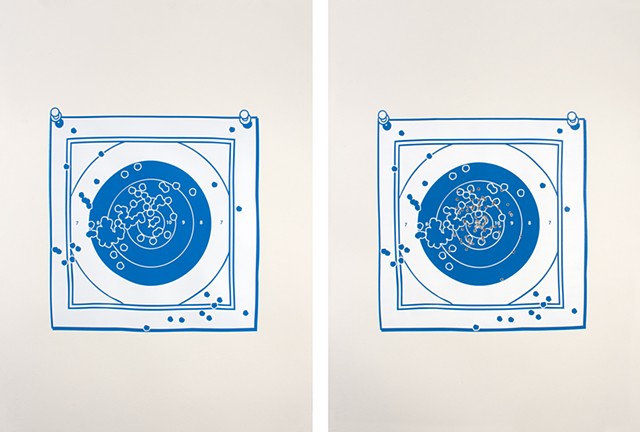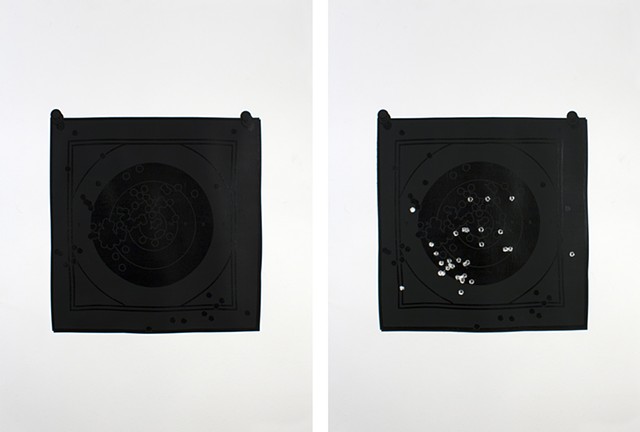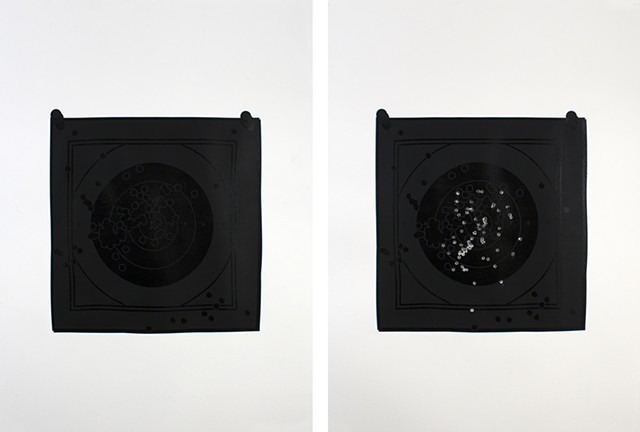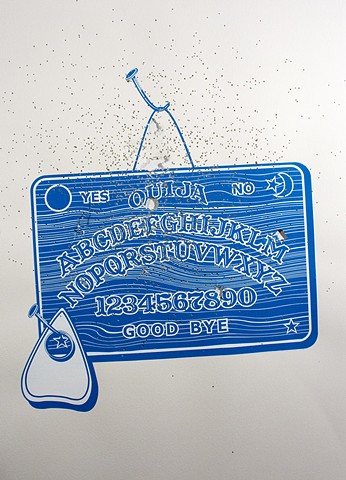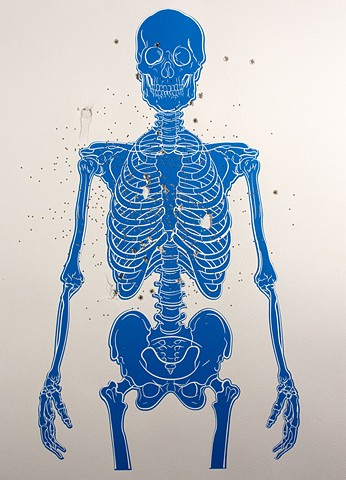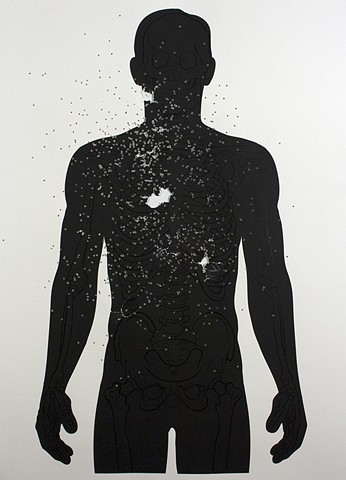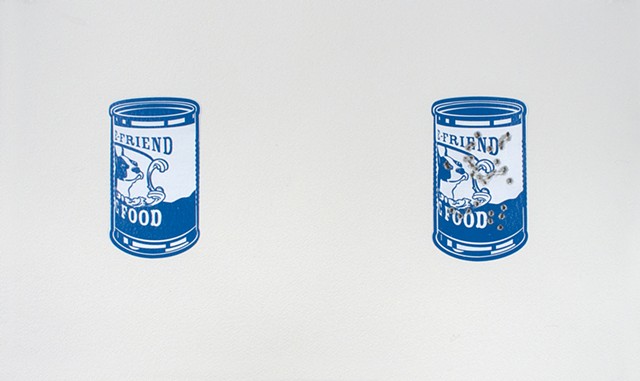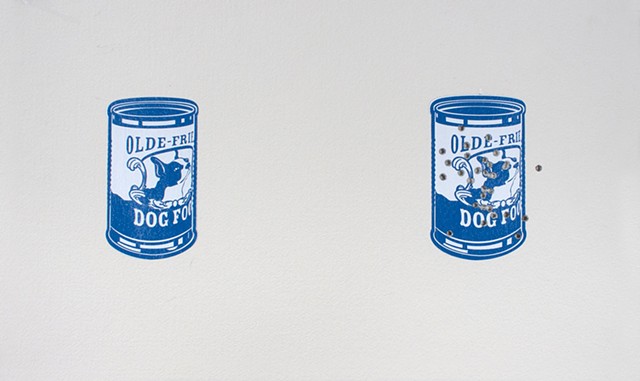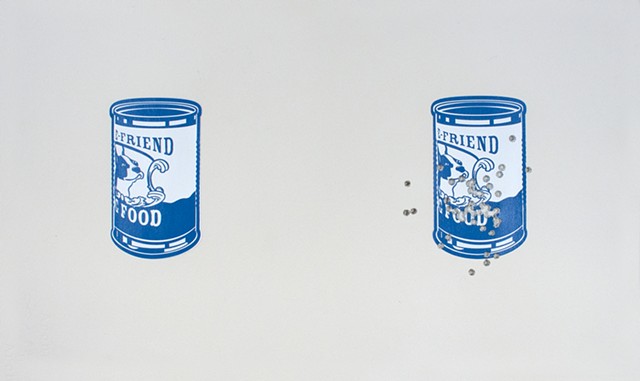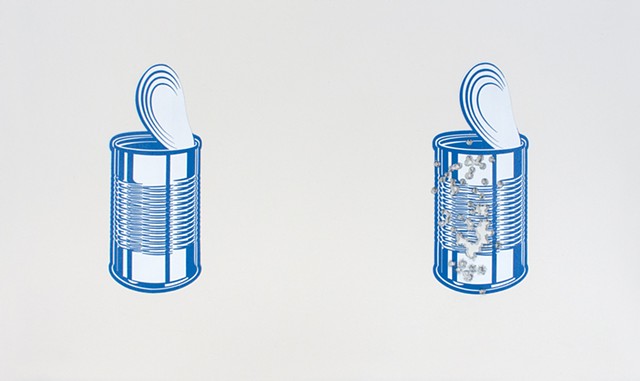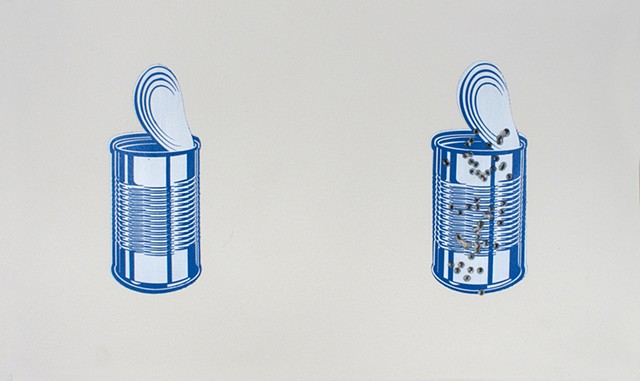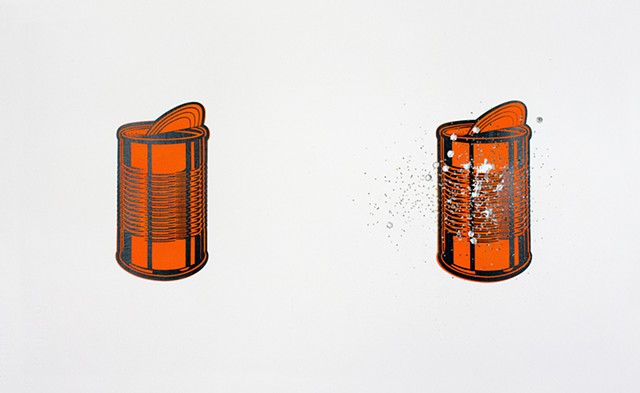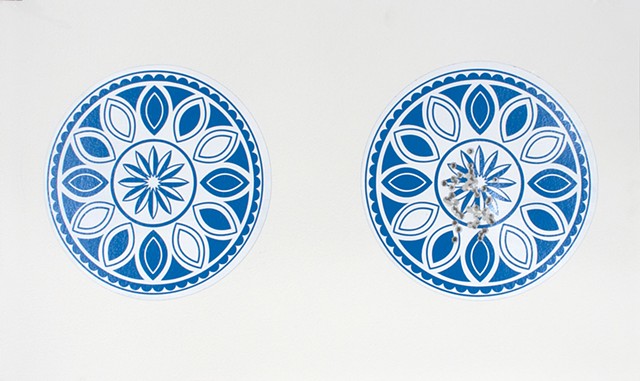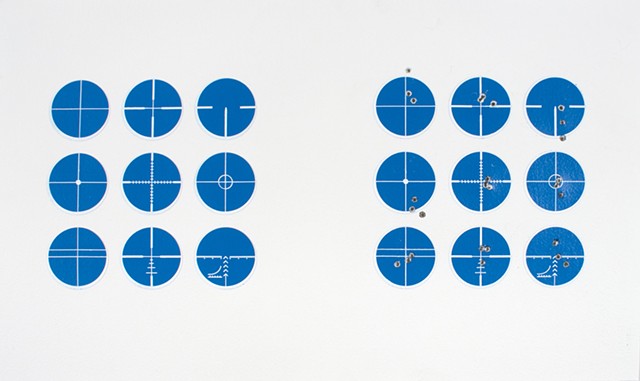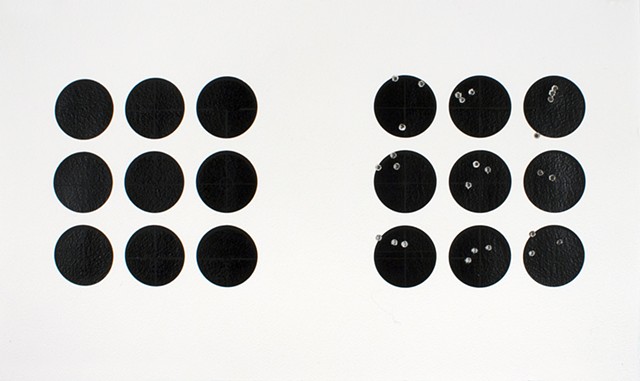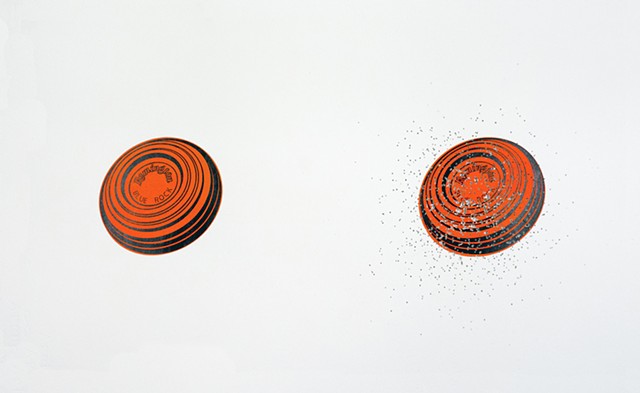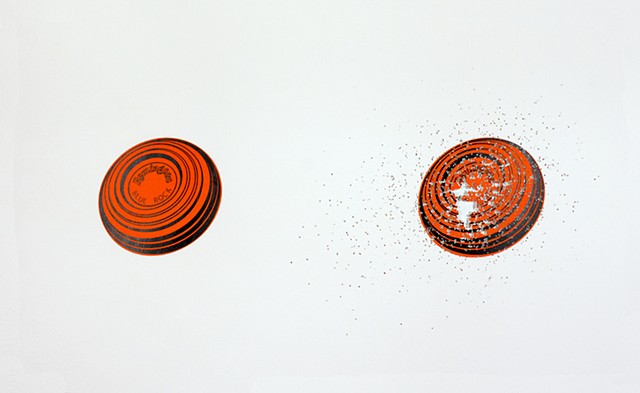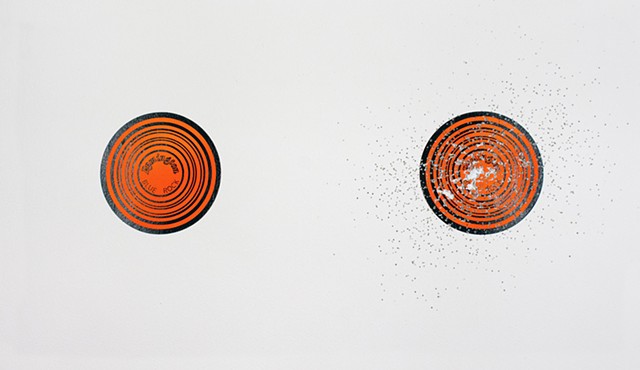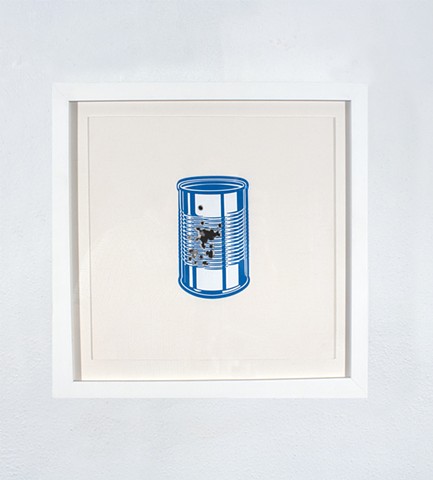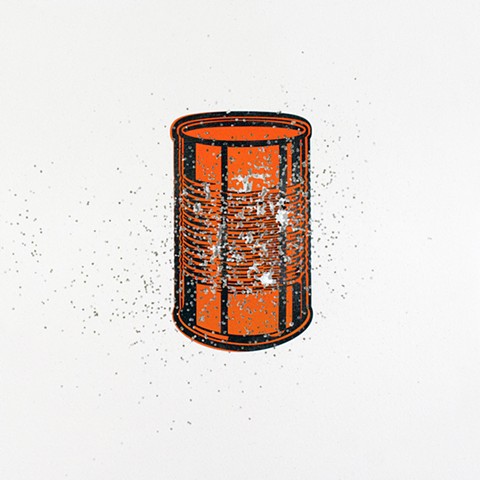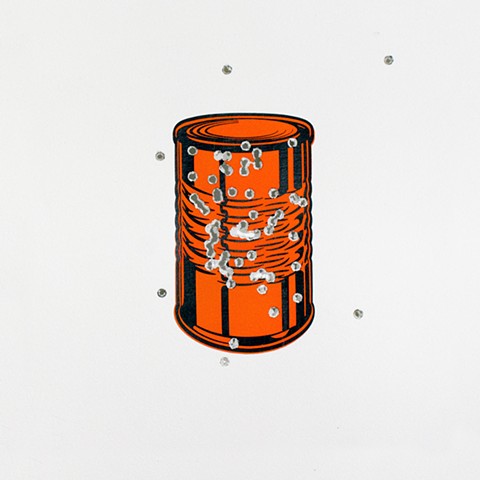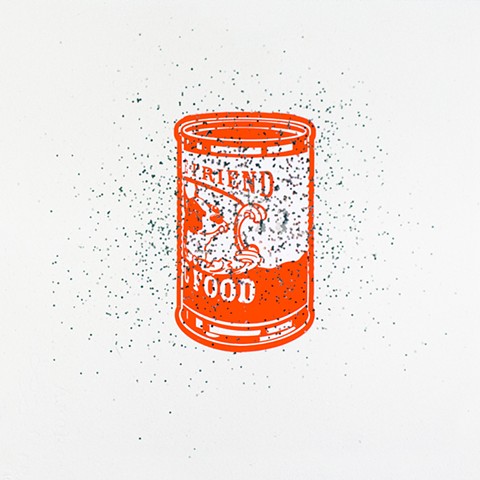Aim with your hand, Kill with your heart
AIM WITH YOUR HAND, KILL WITH YOUR HEART
In conversation with Jonathan Greene
Nathan Skiles’ newest series of work, Aim with your hand, Kill with your heart, addresses themes of focus, recognition, intent and chance. Made using acrylic on paper, it is a noticeable departure from foam rubber as the primary element of his artwork. Instead of a traditional press release, we have chosen to release a short question and answer session with Skiles.
JG: What led to this body of work; do you consider this work a departure from your work with foam rubber or a form of growth?
NS: Both, actually. Obviously the work has made a significant departure in terms of materials. That said, the lifelike scale, the synthesis of mechanic and handmade processes, and my fascination for curio and kitsch objects are still present. As a direct successor to the body of foam rubber work exhibited in last year’s solo exhibition at the Hunterdon Art Museum, this work stems from my focus on the tumultuous relationship between the creator and the created.
JG: What is your earliest childhood memory of making art that relates to this body of work?
NS: I had a very active and imaginative childhood. In a rural environment surrounded by antiquated tools and equipment, like many children I was especially drawn to objects that had the potential to either exist under multiple identities or objects whose unique structure enabled new forms of play.
JG: Is there a significance to the ones that are blue and white?
NS: The cyan and white images directly reference some of the cheap, monochromatic targets found at ranges across the country. Most firearms are coated in a matte black or deep bluing finish; the intense cyan stands out against the mechanical sights and creates a clear sight picture. Applying this format to the series creates an almost institutional, mechanical aesthetic. Inversely, the black on black and transparent versions of the work were specifically created to disrupt, challenge and complicate the act targeting and recognition.
JG: What is the significance of the bullet holes and dart marks? Why are they framed together as a diptych in most cases?
NS: The two questions would be best answered as a pair. Duality is a recurring theme in my work. Looking back at the sculpture, metaphors of twinned, conjoined and cyclical forms were always present. When it comes to dealing with the existence of my own work, I really want to participate in a non-passive form of observation and interaction; the diptych format reinforces the caustic relationship between the target and the shooter.
Nathan Skiles’ mind is a junk drawer of eclectic remnants, and sometimes a listing of required reading seems the most appropriate way for a viewer to connect the conceptual dots of the work. A short list would include: the observer effect, Schrödinger's cat and Meat Puppets’ “Oh, me.”
Nathan Skiles was born in Anderson, Indiana. He received his MFA from Montclair State University in Montclair, New Jersey and his BFA from Ringling College of Art and Design in Sarasota, Florida. This is his third solo exhibition with Greene Contemporary.
